I had the pleasure of taking part Friday in France 24’s panel discussion program, the World This Week, where the subject was, as you can probably guess, the fall of Egyptian President Hosni Mubarak. The other guests were Vivienne Walt of Time, Matthew Saltmarsh of the IHT and Anne-Elisabeth Moutet of the Sunday Telegraph. Richard Perle, assistant defense secretary under President Ronald Reagan and adviser to the Pentagon under President George W. Bush, also joined us briefly by telephone. Part one can be found here. Part two can be found here.
Africa Archive
Free Newsletter
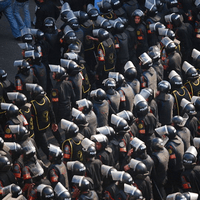
There’s a lot of trepidation mixed in with the joy of seeing one of the Arab world’s great dictators finally step down. With Americans being so down on themselves these days, many see more to fear than to celebrate. But on the whole, there’s no good reason for the pessimism on display, which is based on a lot of specious assumptions that need to be discarded. Here’s my Top 10 list. 1) Mubarak’s quick-exit scenario means this is Iran, 1979. Nonsense, with the key reasons being the deft play by the Egyptian military and its deep and long relationship with […]
The transformation currently unfolding in the Middle East could be as monumental as the changes in Europe that followed World War II and the disintegration of the Soviet Union. In both of those instances, the goals of the United States and its allies were transparent and consequential: to solidify Western power and establish a world order based on democracy and market economics. This successful model should be pursued once more by providing smart, dual-benefit assistance to all Middle Eastern nations seeking to build free and democratic societies. In the coming months, numerous governments in the Middle East will likely need […]
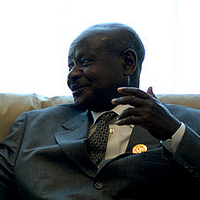
KAMPALA, Uganda — When Ugandan President Yoweri Museveni seized power 25 years ago, he brought order to a nation that was reeling from two decades of crisis. After the terror-filled reigns of Idi Amin and Milton Obote, Museveni ushered in an era of relative prosperity. The West was quick to brand Uganda a rare “African success.” Praised for tackling HIV/AIDS, promoting women’s rights and pursuing growth through the Washington Consensus of fiscal discipline and free markets, Museveni gained acclaim as a “New African Leader”: a bush soldier turned democrat, poised to steer his continent in a new direction. But in […]

One simple rule of revolution is that regimes fall when their security services refuse to fire on protesters, while uprisings often falter when security forces do go ahead and shoot. The situation in Egypt remains fluid, but thus far the Egyptian army has not violently put down the protest movement. Why? The answer is complicated. Mark Thompson argued at Time’s Swampland blog that the exposure of Egyptian military officers to norms of professionalism and civilian control in the United States may have been determinative in the Egyptian army’s decision not to crush the anti-Mubarak protests. Thompson’s argument draws on several […]
A few news items highlight a point I’ve been periodically raising over the past year, namely that Africa, as the region of the world with the most strategic upside, deserves more and better-conceived U.S. attention. We already know about China’s strategic inroads into Africa’s resource and infrastructure markets. That has driven what is to my mind perhaps the most under-appreciated story of the past few years: India’s push to play catch-up in Africa. That has taken the form of investments in resources and manufacturing infrastructure, but also mobile phone markets and consumer goods. At the same time, the European Commission, […]
I never really understood at the time why so many observers ridiculed French President Nicolas Sarkozy for his efforts to launch the Union for the Mediterranean. Clearly, it was an ambitious project. If the global economic crisis hadn’t finished it off, the complicated politics of the region probably would have. But in light of the recent events in Tunisia and Egypt, where the uprisings have been driven as much by frustrated economic aspirations as by repressed political aspirations, it’s hard not to see Sarkozy’s emphasis on economic development of the southern Mediterranean — as a pre-emptive effort to prevent inflows […]
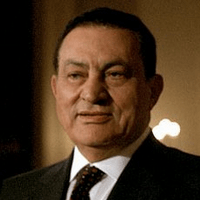
Although even the immediate outcome of the unrest in Egypt remains uncertain, its potential ramifications beyond the country’s borders are worth assessing, considering Egypt’s importance to regional and world politics. Considered an international center of Islamic culture and teaching, Egypt is perhaps the most influential Arab country, with the largest Muslim population in the Middle East and one of the strongest militaries in the Arab world. It has contributed to foreign stability operations, most notably in the First Gulf War, and has important intelligence assets in the world’s various Islamist movements, including reported informants within al-Qaida. Egypt also enjoys considerable […]
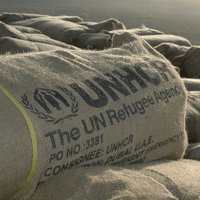
One of the most complex and difficult humanitarian problems confronting the international community today is that of protracted refugee situations. These are refugee situations that have moved beyond the emergency phase, but where solutions in the foreseeable future do not exist. Many of the refugees left behind in these situations have to live under terrible conditions, warehoused in camps or stuck in shanty towns, exposed to dangers, and with restrictions placed upon their rights and freedoms. I first became aware of the significance and dimensions of the contemporary problem of prolonged exile in 2001, after a brief visit to the […]

One need not venture far into the world of refugee assistance to encounter a maxim whose air of axiomatic truth can be a conversation-stopper, and whose terms, like sacred postulates of the refugee-response system, are rarely unpacked: The Office of the U.N. High Commissioner for Refugees (UNHCR) has the refugee-protection mandate. But several issues within that black box are worth illuminating. Namely, what does “refugee protection” mean? What is the nature of the “mandate”? And is it true that UNHCR is its unique possessor? While this might seem like a dry line of inquiry, like so much else these days, […]
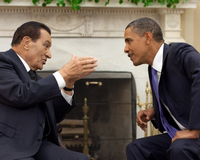
While there remains a ton of things that can go wrong with the unfolding revolution in Egypt, there’s a strong case to be made that America, despite its low popular standing there, has been handed a gift horse whose mouth, as the axiom puts it, is best left unexamined. Because most of America’s concerns center on security issues, I’ll frame the argument for why this is the case in tactical, operational and strategic terms, and then finish on the most relevant grand strategic note — namely, the new Axis of Good that may result. Concerning President Hosni Mubarak’s conditional offer […]

Over the course of the two-week-old protests in Egypt, the American media has been consumed with debate over how the U.S. government should react. An emerging consensus across the political spectrum argues that President Barack Obama should support the protesters’ demand that Egyptian President Hosni Mubarak resign immediately. This view was prominently expressed in an open letter to Obama by dozens of well-known scholars of Middle East politics, who advised him to essentially abandon 30 years of strong support for the Mubarak regime by throwing in America’s lot with the protest movement. Such a step would not clearly serve American […]

There’s no way to predict what will unfold in Egypt in the days and weeks ahead. Will protests continue until President Hosni Mubarak is overthrown? Will the military and security services initiate a full-scale crackdown in the name of restoring law and order? What will instability in the largest country in the Arab world portend for the Middle East as a whole? The U.S. national security establishment, of necessity, is in reactive mode right now as it assesses these questions. However, to the extent that Washington can shape the situation, what are some of the lessons from other “regime changes” […]
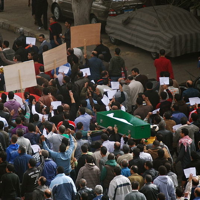
Not since the 1960s has the idea of a common Arab identity seemed more real. The Tunisian and Egyptian revolts were quickly defined as Arab uprisings; sure enough, these historic events have already reverberated in Yemen, Jordan, Syria, and even Saudi Arabia. But Tunisia and Egypt can also be described as African countries, and not just because of their geographic location. The nations of North Africa have been imagined as African by some of the region’s political and intellectual luminaries. Even Gamal Abdel Nasser, Egypt’s leader from 1956 to 1970 and an eloquent paladin of pan-Arabism, invoked the African element […]
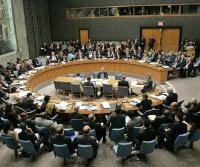
Who cares about the United Nations Security Council? Over the past year, major powers have certainly been taking the council increasingly seriously. U.N. experts who argue that the council’s credibility rests on its appeal to big players in the global system were comforted by Germany, India and South Africa’s successful campaigns for two-year seats on the council last year. But some poor, weak governments have decided to defy it, with a series of African leaders, in particular, showing contempt for the council’s authority. In January 2010, President Idriss Déby of Chad insisted that the U.N. withdraw peacekeepers charged with protecting […]
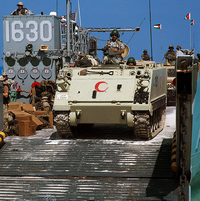
The political situation in Egypt remains uncertain, with the still-in-question loyalty of the Egyptian army all that will determine whether or not President Hosni Mubarak survives as the country’s leader. However, even if Mubarak manages to hold onto power, change is increasingly likely, and Egypt’s potential political transformation over the upcoming months could have a large impact not only on the Egyptian military itself, but also on the military balance in the region. For the first time since the 1970s, Israeli military planners may have to take Egyptian military potential seriously, while other states in the region will also take […]
I’ve been having trouble wrapping my head around the implications of what’s already taken place in Egypt, and clearly there’s still a lot more on tap. The U.S. and Europe are now calling for an orderly transition to begin immediately, and while that makes for sound policy, the sheer impossibility of that demand underscores what I think is the most alarming dynamic here: a crisis of legitimacy, on three levels. The first level is clearly within Egypt itself, because while it’s easy to say that President Hosni Mubarak must go, there’s no objective standard for determining the legitimacy of what […]
